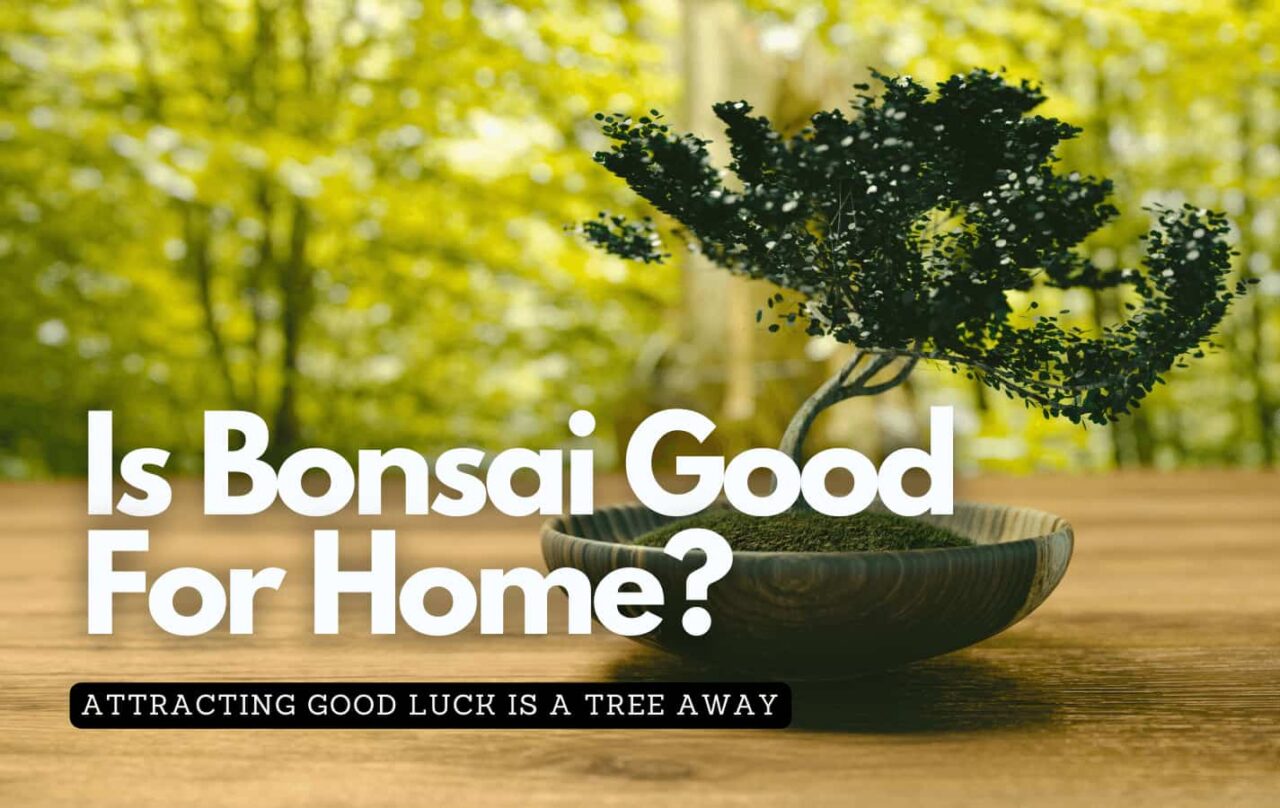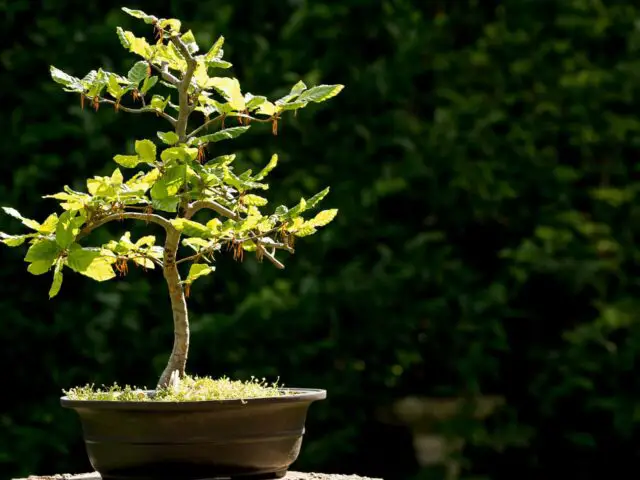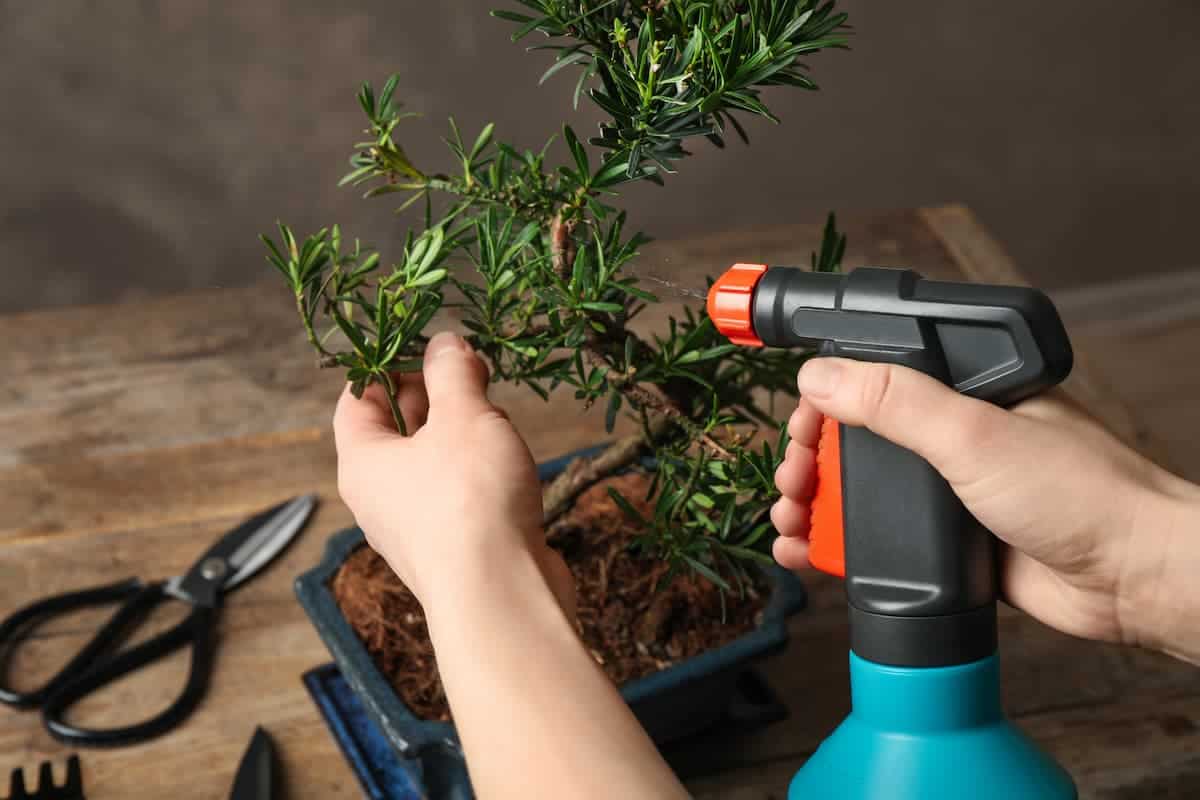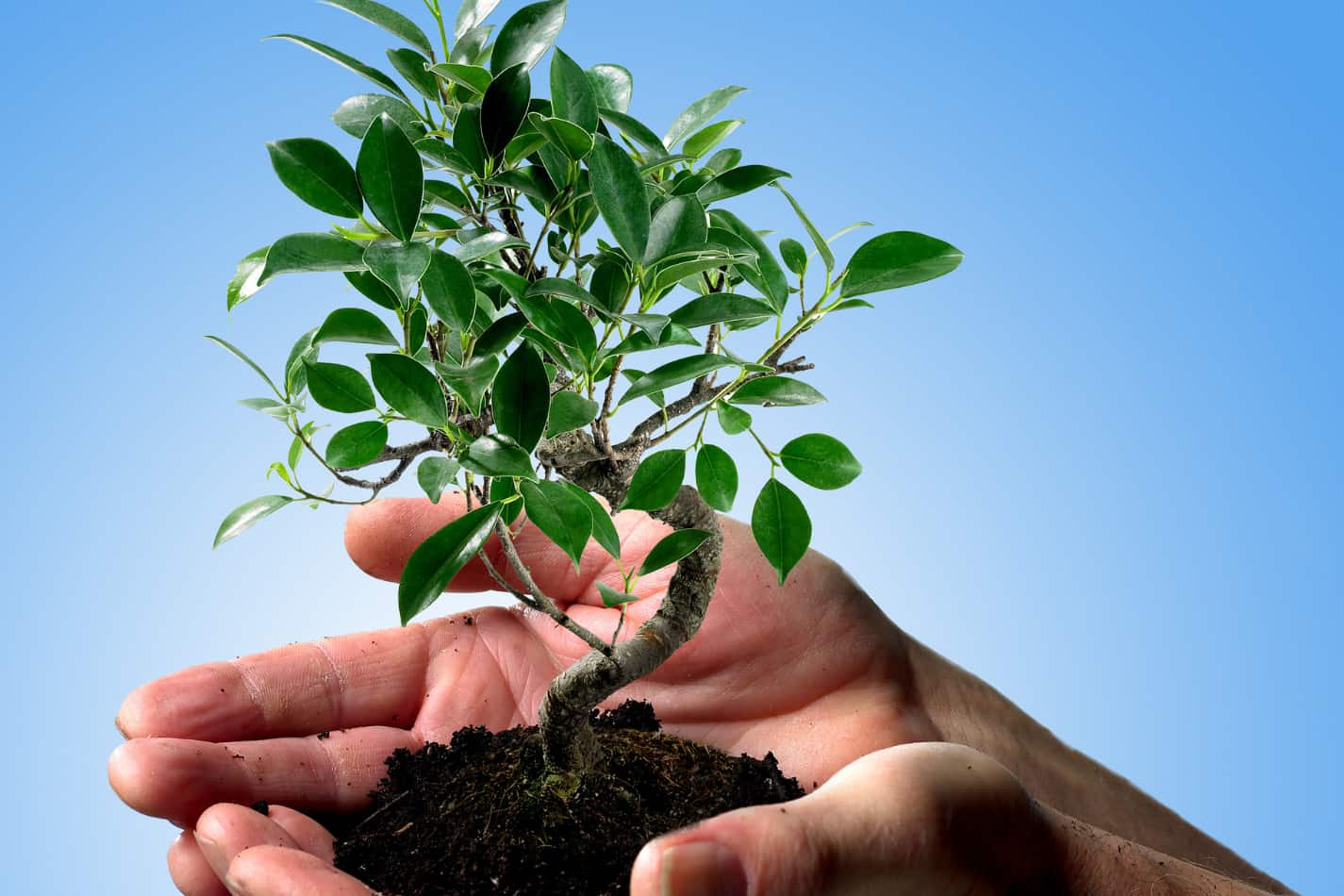Just like a meticulously written poem offers layers of meaning in a few lines, a bonsai tree adds layers of beauty and benefits to your home with its compact form.
You’ve likely heard that these miniature trees can purify the air and enhance your decor, but there’s much more beneath the surface. From boosting your mental health to fostering a sense of achievement, the practice of nurturing a bonsai could transform not just your living space but your life.
Yet, as you ponder whether to introduce a bonsai into your home, consider the commitment and care these living artworks demand. Why is this ancient art form worth your time and attention? Let’s explore.

Key Takeaways
- Bonsai trees improve indoor air quality and reduce stress levels.
- They require specific care, including 10 hours of light and proper watering.
- Choosing the right species, like Ficus or Chinese Elm, ensures successful indoor growth.
- Bonsais enhance connection to nature and overall well-being at home.
Benefits: How Bonsai Trees Enhance Your Home
Bonsai trees offer significant benefits for indoor environments, including improving air quality and reducing stress levels.
As house plants, these miniature marvels work tirelessly to produce oxygen, playing a pivotal role in mitigating indoor air pollutants. This not only freshens up your indoor environment but also fosters a healthier living space.
Engaging with an indoor bonsai tree can be a serene retreat from the chaos of daily life, effectively lowering stress levels, reducing blood pressure, and promoting relaxation.
Additionally, bonsais help maintain indoor humidity levels, combating common health nuisances such as sore throats and dry skin. Their presence boosts your connection to nature, enhancing overall well-being and improving your quality of life.
Moreover, bonsais elevate home decor, blending beauty and functionality seamlessly into your living spaces.
Selecting the Perfect Indoor Bonsai Tree Species
When selecting your bonsai, you’ll find a variety of species suited for indoor environments such as Ficus or Chinese Elm, each with distinct care needs.
It’s crucial you match the bonsai’s requirements with your home’s lighting conditions and humidity levels to ensure its thriving growth.
Additionally, consider your own expertise in bonsai care, opting for species that align with your skill level to guarantee a successful cultivation journey.
Bonsai Species Variety
Selecting the right species, such as Ficus, Dwarf Jade, or Fukien Tea, is essential for ensuring your indoor bonsai thrives under home conditions.
Tropical and subtropical bonsai trees, particularly Ficus, are notably resilient, making them ideal indoor trees. These species have adapted to thrive in the relatively stable environment of a home, where fluctuations in temperature and humidity are minimal compared to their natural habitats.
For enthusiasts desiring freedom from the rigorous demands of traditional bonsai care, choosing species that don’t require dormancy periods, like Carmona (Fukien Tea) or the robust Chinese Elm, is crucial.
Each bonsai species has unique requirements for lighting, watering, and temperature, necessitating careful consideration to match these needs with your home’s conditions for optimal health and growth.
Care Requirements Overview
After choosing the right species for your home environment, it’s crucial to understand the specific care requirements to ensure your indoor Bonsai thrives.
Select indoor Bonsai trees like Ficus, Jade, Chinese Elm, or Schefflera for easier care. These varieties adapt well to indoor conditions but demand proper lighting. Aim for at least 10 hours of bright light daily to maintain their health.
Monitoring soil moisture levels is essential; water your Bonsai only when necessary to prevent overwatering. A well-draining soil mix is vital to avoid waterlogging and ensure healthy root growth.
Additionally, be mindful of the specific temperature and humidity needs of your indoor Bonsai tree. Tailoring the care to these requirements will foster optimal growth and health, offering you the freedom to enjoy the beauty of Bonsai at home.
Caring For Your Indoor Bonsai Tree
Caring for your indoor Bonsai involves mastering the balance of proper lighting, watering, and humidity control.
You’ll need to ensure your tree receives enough light, either naturally or through artificial means, for about 10 hours daily and maintain soil moisture without overwatering.
Additionally, learning the right pruning and shaping techniques is essential for both the aesthetic and health of your Bonsai.
Selecting Proper Lighting
To ensure your indoor Bonsai trees flourish, it’s crucial to provide them with bright, indirect sunlight, ideally from a south-facing location. High light intensity isn’t just beneficial but necessary, especially for tropical Bonsai species like Ficus and Jade. These trees demand ample light to thrive within the confines of your home.
When natural light isn’t enough, don’t hesitate to supplement with artificial lighting, such as fluorescent or LED lights. Aiming for about 10 hours of artificial light daily can significantly boost their growth.
Watering and Humidity Control
While ensuring your indoor Bonsai trees receive proper lighting is crucial, you must also pay close attention to their watering and humidity needs to maintain their health and vitality.
Proper watering is vital for indoor Bonsai; both overwatering and underwatering can severely harm the tree’s health. Utilize a well-draining soil mix to prevent waterlogging and root rot. It’s crucial to monitor soil moisture levels by checking the dampness of the soil to determine the right time to water your indoor Bonsai.
Furthermore, humidity control is essential, especially for tropical Bonsai species that thrive in high humidity environments. Consider employing a humidity tray or misting the tree to boost humidity levels around your indoor Bonsai, ensuring it flourishes in its indoor setting.
Pruning and Shaping Techniques
Pruning and shaping techniques are key to maintaining your indoor bonsai’s aesthetic appeal and overall health, requiring sharp tools and a meticulous approach to guide its growth effectively. Essential for achieving the desired look, pruning keeps your bonsai’s size and shape in check.
Shaping techniques, particularly wiring, allow you to gradually direct branch growth, crafting artistic forms that embody freedom and creativity. During dormant periods, regular pruning sessions are crucial for controlling growth, eliminating dead branches, and ensuring the tree’s vitality.
Utilizing proper tools, such as sharp scissors and tweezers, is critical for precise cuts that foster your indoor bonsai’s development.
An attentive and detailed approach to these practices guarantees your bonsai not only looks stunning but remains vigorous, showcasing the beauty of nature in miniature form within your home.
Overcoming Bonsai Maintenance Challenges
Caring for a bonsai tree indoors often involves navigating several maintenance challenges, including the need to maintain proper humidity levels and replicate a natural dormancy period for certain species.
Achieving the right humidity levels for your indoor bonsai is crucial, as some species thrive only in specific moisture conditions. You might find yourself investing in a humidifier or regularly misting your bonsai to meet these needs.
Simulating a dormancy period, especially for temperate bonsai trees, requires strategic reduction in light and temperature, mimicking their natural winter cycle—a task that’s not always straightforward indoors.
Furthermore, the limited space in bonsai pots restricts nutrient and water storage, making proper care a delicate balance. You’ll need to understand the unique watering and fertilizing requirements of your bonsai species to ensure its health and growth, possibly incorporating additional artificial lighting to compensate for inadequate natural light indoors.
Bonsai for Mental Well-being
Engaging with bonsai trees can significantly enhance your mental well-being, offering stress reduction and improved indoor air quality. Interacting with these miniature trees can lower blood pressure and aid in relaxation, directly contributing to your mental health.
Furthermore, bonsai plants play a crucial role in increasing indoor humidity levels, mitigating common health concerns such as sore throats and dry skin. This adjustment to your living environment not only benefits your physical health but also supports your mental well-being by creating a more comfortable and soothing atmosphere.
Being in close proximity to nature, as facilitated by bonsai, incrementally enhances happiness and elevates the quality of life. Thus, incorporating bonsai for mental well-being into your home isn’t just an aesthetic choice but a profound step towards a healthier, more serene lifestyle.
Styling Techniques for Aesthetic Appeal
After exploring how bonsai trees enhance mental well-being, let’s focus on how you can maintain their beauty and health through effective styling and pruning techniques.
Pruning isn’t just about cutting back; it’s a vital practice to shape your bonsai, encouraging new growth while maintaining its miniature size. By understanding your tree’s growth patterns, you’ll master when and how to prune, ensuring a balanced and aesthetically pleasing design.
Incorporate styling techniques such as wiring and strategic branch positioning to achieve harmony and proportion in your bonsai. These methods are crucial for growing bonsai that not only thrive but also reflect your personal artistic vision or adhere to traditional aesthetics.
Conclusion
In conclusion, incorporating a bonsai into your home isn’t just about beautifying your space; it’s a holistic journey towards enhancing your well-being.
Selecting the right species, mastering indoor care, and overcoming maintenance challenges are crucial steps. Bonsai cultivation fosters patience and creativity, significantly boosting mental health.
With proper styling and pruning, you’ll not only have a thriving miniature tree but also a deeply rewarding personal growth experience.
Embrace bonsai’s potential to transform both your environment and inner self.






